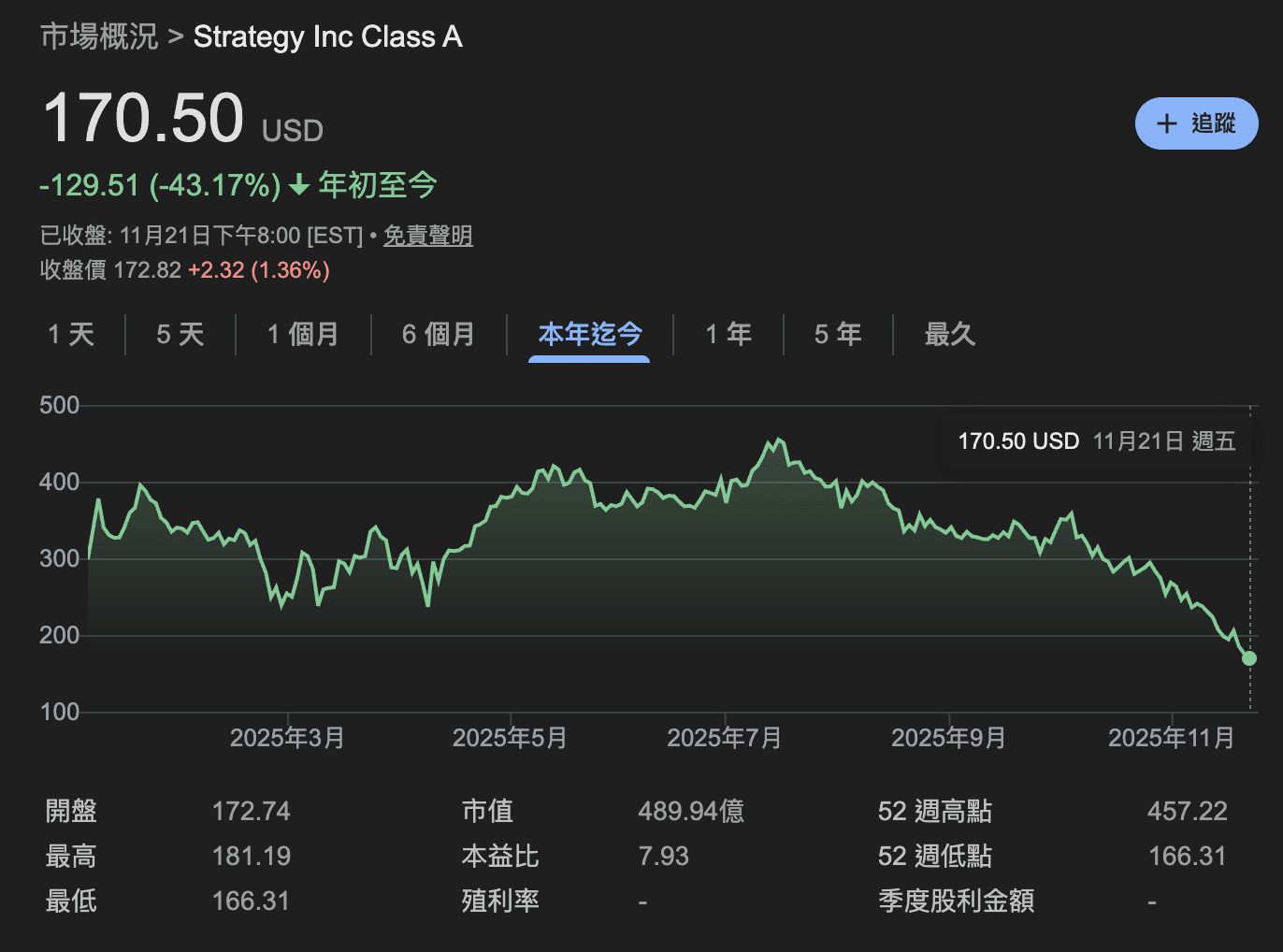
As the index provider MSCI hinted at possibly reclassifying MicroStrategy as an investment company or an ETF-like entity, the company's Executive Chairman Michael Saylor quickly retaliated on Friday, emphasizing that MicroStrategy is still a software company with a clear operational model and innovative spirit. Market analysts warned that if the reclassification were to happen, it could trigger a forced sell-off of index funds amounting to as much as $9 billion. In response, experts further suggested that MSCI's actions are aimed at blocking financial engineering 'arbitrage cycles,' which could further impact DAT company.
(JPMorgan: MSCI index may kick MicroStrategy out, potentially triggering nearly $10 billion capital outflow)
MSCI may cut classifications, and the market is worried about a reversal of capital inflows.
According to market news, MSCI is considering redefining MicroStrategy's corporate nature due to its excessive Bitcoin asset proportion, along with ongoing capital operations related to cryptocurrencies. If MicroStrategy is no longer viewed as a traditional operating company, it could be removed from widely tracked indices like MSCI World and MSCI USA, impacting the allocation strategies of many passive funds and potentially forcing these institutions to sell shares, significantly affecting stock prices.
Saylor: We are a Bitcoin capital company, not a passive tool.
Saylor immediately published a detailed thread on X, emphasizing that MicroStrategy is not a 'passive fund, holding company, or index tool,' but a dual-core enterprise combining corporate analytics software and digital asset strategies. He pointed out that MicroStrategy's software business is still operating robustly, with annual revenue of about $500 million, and it is also the world's largest corporate holder of Bitcoin, with the current holding value exceeding $20 billion.
Why can't innovative financial operations be considered 'operational behavior'?
Saylor further outlines significant capital market operations for 2025, refuting the claim that MicroStrategy is a 'passive tool,' including:
Issued 5 times Bitcoin-backed public securities with a total nominal amount of $7.7 billion.
Launched an innovative product $STRC, a variable-rate preferred stock linked to Bitcoin performance.
Continuously developing convertible bonds and hybrid financial products to support Bitcoin reserve strategies.
'These actions all show we are active capital market innovators,' Michael Saylor stated.
He emphasizes that MicroStrategy is 'engineering' new financial instruments, connecting the worlds of traditional finance and digital assets, which is fundamentally different from the passive nature of ETFs.
Investors are cautious, and the stock price has fallen 43% this year.
Despite Saylor's strong stance, MicroStrategy's stock price remains influenced by market sentiment, dropping about 3% on Friday afternoon. MSTR has fallen 43% this year.

The past increase was mainly benefited from Bitcoin's price breaking $100,000, along with the amplified increase effect from the company's high leverage strategy.
Analysts have differing views on the potential reclassification of MSCI. Some believe MicroStrategy has essentially become a 'Bitcoin ETF embedded in the software division,' while others praise Saylor's strategy as a significant innovation in corporate finance, creating billions of dollars in value for shareholders.
Insisting on the HODL strategy: holding 250,000 coins, never sold.
As of November 22, 2025, MicroStrategy holds over 640,000 Bitcoins, with an average purchase cost of about $74,433 per coin. Since initiating the Bitcoin reserve strategy in 2020, the company has never sold a single Bitcoin and has repeatedly reaffirmed that it will 'HODL forever.'
Saylor reiterates his uncompromising stance at the end of his tweet: 'Index methods can change, but our beliefs will not. We will continue to build the Bitcoin monetary network, regardless of how the outside world labels us.'
Expert opinion: MSCI's actions are to block financial engineering 'arbitrage cycles.'
In response to this potential reclassification event, crypto industry researcher Yu Zhe'an offers a deeper perspective. He believes that MSCI's considerations are not only assessing whether MicroStrategy still qualifies as an operating company but also preventing a 'financial flywheel' model that arbitrages through index mechanisms.
Yu Zhe'an pointed out that companies like MicroStrategy, referred to as DAT (Digital Asset Treasuries), are essentially employing a self-reinforcing strategy: issuing bonds to buy coins, thereby boosting stock prices, which then get included in major indices due to rising stock prices, forcing passive funds to buy, further driving prices up, creating a capital operation similar to a 'coin speculation cycle.'
'These DAT companies are essentially disguised as high-leverage stock funds,' Yu Zhe'an said. 'MSCI originally promised to provide a productive corporate portfolio but was forced to include such high-volatility crypto asset warehouses, leading global pension funds to unknowingly provide liquidity for their speculative games.'
He further emphasizes that this is not an oppression of cryptocurrencies but a necessary correction of the current classification standards between 'operating companies' and 'asset-holding companies.' If MSCI reclassifies MicroStrategy, it is likely to trigger other index companies to follow suit, further affecting the entire capital market's definition and evaluation of such enterprises.
This article discusses how the founder of MicroStrategy responds to the MSCI reclassification threat: We are not an ETF; we are Bitcoin capital innovators. Originally appeared in Chain News ABMedia.


